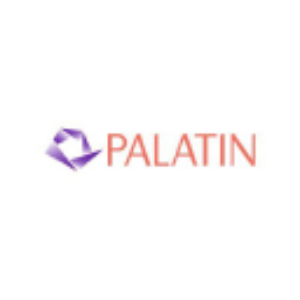Welcome to our dedicated page for Palatin Tech news (Ticker: PTN), a resource for investors and traders seeking the latest updates and insights on Palatin Tech stock.
Palatin Technologies, Inc. (PTN) is a biopharmaceutical innovator developing receptor-specific therapies for conditions with high unmet medical needs, including obesity, inflammatory diseases, and ocular disorders. This page provides investors and industry professionals with timely updates on the company’s clinical progress, regulatory milestones, and strategic initiatives.
Access comprehensive coverage of Palatin’s press releases and news articles, including updates on melanocortin receptor-targeted drug development, clinical trial results, and partnership announcements. Our curated repository ensures you stay informed about key developments in the company’s pipeline, such as PL8177 for ulcerative colitis and MC4R agonist programs for metabolic disorders.
Content spans regulatory filings, research collaborations, patent updates, and analysis of scientific presentations. Bookmark this page for streamlined access to verified information about Palatin’s advancements in peptide therapeutics and receptor modulation strategies. Check back regularly for objective reporting on how the company addresses complex medical challenges through precision drug development.
Palatin Technologies reported positive interim results from its Phase 3 study of PL9643 for dry eye disease, with recommendations to increase patient enrollment to 350. The company also commenced a Phase 2 study for PL8177 in ulcerative colitis, expecting interim results in early 2023. Vyleesi's net revenue climbed 13% with a 17% increase in prescriptions from the previous quarter. Despite a net loss of $8.3 million for the first quarter ended September 30, 2022, cash reserves were $21.2 million, bolstered by a recent $10 million equity offering.
Palatin Technologies, Inc. (NYSE American: PTN) is set to release its first quarter fiscal year 2023 operating results on November 14, 2022, before market open. A conference call will follow at 11:00 a.m. ET for a review of the results and updates on development programs. The press release will be available at 7:30 a.m. ET.
Investors can access the audio webcast through Palatin's website. The company is focused on developing first-in-class medicines for significant unmet medical needs.
On October 31, 2022, Palatin Technologies (NYSE: PTN) announced a definitive agreement to issue 1,818,182 shares of common stock and warrants to purchase an equal number of shares, priced at $5.50 each. The offering, expected to close by November 2, 2022, is projected to generate approximately $10 million in gross proceeds. Funds will be allocated for general corporate purposes. The offering is conducted under a shelf registration statement filed with the SEC, ensuring compliance and market readiness.
Palatin Technologies, Inc. (NYSE American: PTN) announced the presentation of preclinical and human pharmacokinetic data for PL8177 at the American College of Gastroenterology meeting. The data demonstrated efficacy in animal models of ulcerative colitis, showing that oral PL8177 reduces colonic inflammation without systemic absorption. PL8177, a melanocortin receptor agonist, is currently being evaluated in a Phase 2 trial with interim results expected in early 2023. This research highlights the potential of PL8177 as a safer alternative to traditional immunosuppressive therapies.
Palatin Technologies (NYSE American: PTN) has initiated the PL8177-205 Phase 2 clinical study, enrolling its first patient. This study evaluates PL8177, an oral melanocortin-1 receptor agonist, as a potential treatment for ulcerative colitis (UC), particularly before immunosuppressive therapies. The primary endpoint is the Mayo Endoscopic Subscore, assessing colon mucosa disease levels. Interim data is expected in Q1 2023, with topline results anticipated in Q3 2023. PL8177 aims to address the unmet needs of the estimated 1 million UC patients in the U.S.
Palatin Technologies (NYSE: PTN) announced the publication of a study showcasing the effects of bremelanotide (Vyleesi) on sexual desire in women with hypoactive sexual desire disorder (HSDD). The double-blinded, placebo-controlled trial demonstrated that bremelanotide significantly increased sexual desire for up to 24 hours post-administration (P ≤ 0.01). This research correlates imaging data with increased sexual desire and enhances understanding of Vyleesi's mechanism of action. The study was funded by AMAG Pharmaceuticals and UK health institutions and is registered under NCT04179734.
Palatin Technologies reported a 20% increase in net product revenue for Vyleesi®, reaching $856,000, for the first fiscal quarter of 2023. The number of prescriptions dispensed rose by 17% from the previous quarter, with refills surpassing 50% of total prescriptions, indicating strong patient satisfaction. Compared to the same quarter in fiscal 2022, net revenue has surged by 400%, and prescriptions dispensed have grown by 108%. However, the reported figures are preliminary and not audited, which could result in material changes.
Palatin Technologies (PTN) announced its presentation at the Eyecelerator@AAO 2022 in Chicago, focusing on its melanocortin receptor research pipeline aimed at treating ocular inflammatory conditions. The company is conducting a Phase 3 clinical trial for PL9643, a novel melanocortin agonist for dry eye disease, with results expected in 2Q 2023. Previous Phase 2 studies showed positive outcomes in symptom relief with no safety concerns. Palatin aims to develop innovative treatments supported by genomics and proteomics data for addressing inflammatory diseases.
Palatin Technologies, Inc. (NYSE American: PTN) announced its participation in the Ladenburg Thalmann Healthcare Conference on September 29, 2022, in Cranbury, N.J. Carl Spana, Ph.D., President and CEO, will present an update on the Company's pipeline and partake in an Analyst-led Fireside Chat. Palatin is focused on developing first-in-class medicines targeting the melanocortin receptor system, addressing significant unmet medical needs. For more details, visit www.Palatin.com.
Palatin Technologies, Inc. (PTN) reported a net loss of $12.8 million for Q4 2022, reduced from $13.9 million in Q4 2021, with a net loss per share of $(1.34) compared to $(1.47) the previous year. Vyleesi sales surged, with gross product sales increasing by 79% and net revenue by 257% from the previous quarter. The ongoing Phase 3 study of PL9643 for dry eye disease shows positive interim results, prompting the data monitoring committee's recommendation to expand the study size to 350 patients. The company closed a $15 million private placement of redeemable convertible preferred stock.

